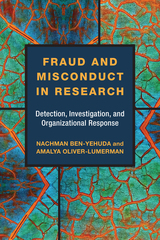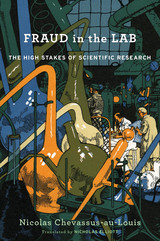
What do we know about the possible poisons that industrial technologies leave in our air and water? How reliable is the science that federal regulators and legislators use to protect the public from dangerous products? As this disturbing book shows, ideological or economic attacks on research are part of an extensive pattern of abuse.
Thomas O. McGarity and Wendy E. Wagner reveal the range of sophisticated legal and financial tactics political and corporate advocates use to discredit or suppress research on potential human health hazards. Scientists can find their research blocked, or find themselves threatened with financial ruin. Corporations, plaintiff attorneys, think tanks, even government agencies have been caught suppressing or distorting research on the safety of chemical products.
With alarming stories drawn from the public record, McGarity and Wagner describe how advocates attempt to bend science or “spin” findings. They reveal an immense range of tools available to shrewd partisans determined to manipulate research.
Bending Science exposes an astonishing pattern of corruption and makes a compelling case for reforms to safeguard both the integrity of science and the public health.


From a journalist and former lab researcher, a penetrating investigation of the explosion in cases of scientific fraud and the factors behind it.
In the 1970s, a scientific scandal about painted mice hit the headlines. A cancer researcher was found to have deliberately falsified his experiments by coloring transplanted mouse skin with ink. This widely publicized case of scientific misconduct marked the beginning of an epidemic of fraud that plagues the scientific community today.
From manipulated results and made-up data to retouched illustrations and plagiarism, cases of scientific fraud have skyrocketed in the past two decades, especially in the biomedical sciences. Fraud in the Lab examines cases of scientific misconduct around the world and asks why this behavior is so pervasive. Nicolas Chevassus-au-Louis points to large-scale trends that have led to an environment of heightened competition, extreme self-interest, and emphasis on short-term payoffs. Because of the move toward highly specialized research, fewer experts are qualified to verify experimental findings. And the pace of journal publishing has exacerbated the scientific rewards system—publish or perish holds sway more than ever. Even when instances of misconduct are discovered, researchers often face few consequences, and falsified data may continue to circulate after an article has been retracted.
Sharp and damning, this exposé details the circumstances that have allowed scientific standards to decline. Fraud in the Lab reveals the intense social pressures that lead to fraud, documents the lasting impact it has had on the scientific community, and highlights recent initiatives and proposals to reduce the extent of misconduct in the future.
READERS
Browse our collection.
PUBLISHERS
See BiblioVault's publisher services.
STUDENT SERVICES
Files for college accessibility offices.
UChicago Accessibility Resources
home | accessibility | search | about | contact us
BiblioVault ® 2001 - 2024
The University of Chicago Press









